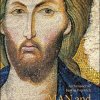Свети Герман Аљаски – Апостол Православља у Америци
 У XVIII веку живео је у Русији дечак по имену Герман, који је чезнуо за Богом више него за било чим другим у овом пролазном свету. Када је имао дванаест година овај - за Бога већ опредељени - дечак отишао је у манастир. Духовник тог манастира је био чувени старац Теодор Санаксарски, пријатељ монаха Пајсија Величковског.
У XVIII веку живео је у Русији дечак по имену Герман, који је чезнуо за Богом више него за било чим другим у овом пролазном свету. Када је имао дванаест година овај - за Бога већ опредељени - дечак отишао је у манастир. Духовник тог манастира је био чувени старац Теодор Санаксарски, пријатељ монаха Пајсија Величковског.
Једном приликом неки људи, у потрази за печуркама, зађоше дубоко у шуму и тамо набасаше на малену колибу. Из колибе изиђе дечак: био је то млади Герман који је већ у том узрасту подвижнички живео у беспутној руској дивиљини. Герман је читавим својим бићем волео тиховатељски живот у дивљини, јер је управо ту проналазио Бога. Док је још био сасвим млад, Герман се нашао лицем у лице са смрћу: оболео је од опасне и болне инфекције. И мада се - тешко болестан - већ растављао са животом, Герман није хтео да иде земаљскоме лекару, већ се закључао у келију и са сузама молио Богу своме за исцељење. После целоноћне молитве Герман је пао у несвест од исцрпљености и бесвесно лежао на поду. Када се ујутру пробудио, осетио је да је потпуно оздравио. Ове Божије посете Герман се, као свог највећег блага, сећао до краја живота.

 Православни мисионар 159 (5'84)
Православни мисионар 159 (5'84)


